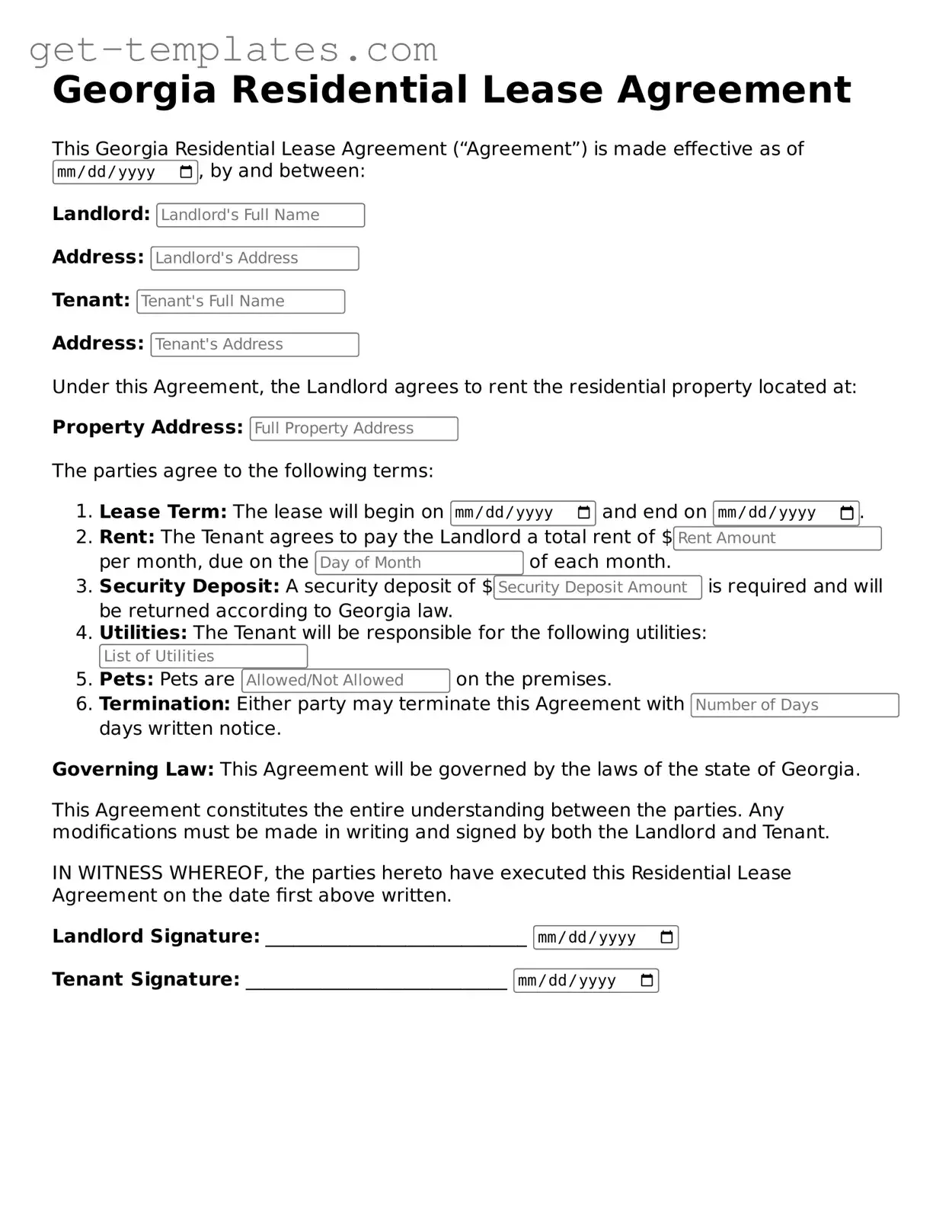Attorney-Approved Residential Lease Agreement Document for Georgia
The Georgia Residential Lease Agreement form is a legally binding document that outlines the terms and conditions between a landlord and tenant for renting residential property in Georgia. This agreement serves to protect the rights of both parties and provides clarity on important aspects such as rent, duration, and responsibilities. Understanding this form is essential for anyone involved in a rental arrangement in the state.
Get Document Online

Attorney-Approved Residential Lease Agreement Document for Georgia
Get Document Online
You’re halfway through — finish the form
Finish Residential Lease Agreement online — edit, save, download made easy.
Get Document Online
or
⇓ PDF Form
